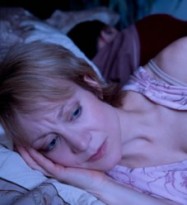
Image: iStockphoto
This piece of research has me worried! My husband can snore for England and causes me interupted slumber most nights. New research has found that women who get less than the recommended eight hours sleep a night are at higher risk of heart disease and heart-related problems than men with the same sleeping patterns.
Research by the University of Warwick and University College London has found that levels of inflammatory markers vary significantly with sleep duration in women, but not men.
[continue reading…]
Does your teen have a bedtime? Did you? How do you enforce it?
According to a study led by Columbia University Medical Center researcher James Gangwisch teens whose parents let them stay up after midnight on weeknights have a much higher chance of being depressed or suicidal than teens whose parents enforce an earlier bedtime, the research is being presented today at a national sleep conference Link to continue reading
Source: USA Today
Published: March 18, 2009

Image: iStockphoto
Good sleep equals good health, says Raul Noriega, manager of the Comprehensive Epilepsy and Sleep Disorders Center at Baylor Regional Medical Center at Grapevine. Yet more than half of women report problems with insomnia. According to the National Sleep Foundation, “women’s lack of sleep affects nearly every aspect of their time-pressed lives, leaving them late for work, stressed out, tired and with little time for friends.” What’s going on? There are several factors, Noriega says, and all relate to poor sleep hygiene. [continue reading…]
Published: August 21, 2008
Findings may help explain how sleep-deprived people stay alertÂ

© iStockphoto.com
Just one night without sleep can increase the amount of the chemical dopamine in the human brain, according to new imaging research in the August 20 issue of The Journal of Neuroscience. Because drugs that increase dopamine, like amphetamines, promote wakefulness, the findings offer a potential mechanism explaining how the brain helps people stay awake despite the urge to sleep. However, the study also shows that the increase in dopamine cannot compensate for the cognitive deficits caused by sleep deprivation.
[continue reading…]


